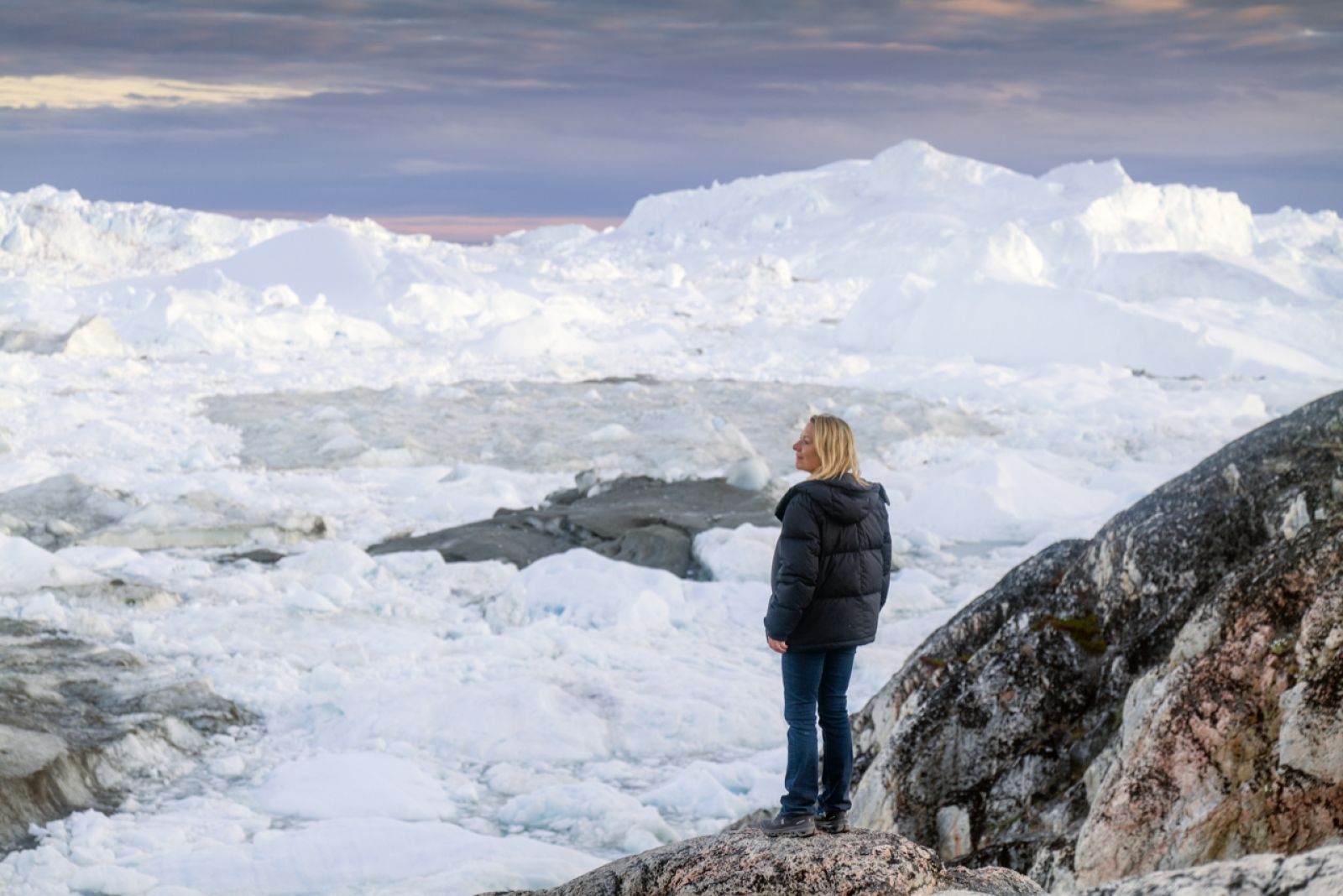Vortrag
Antje Boetius
Into the Ice - Pictures of Polar Expeditions

The ice-covered polar seas are among the least explored areas of Earth. Icy seas belong to the most extreme environments on Earth. They have intrigued polar expeditions since hundreds of years in search for new lands, passages and hunting grounds, but also to reveal their role in the Earth system. Some of these expeditions remain benchmarks of polar exploration, as the Nansen’s Arctic drift mission with FRAM, and Shackleton’s attempt to reach Antarctica with ENDURANCE. In the 20th century, the advent of modern polar research ice-breakers, drift stations and other infrastructure has allowed for substantial progress with assessing the crucial function of polar regions in the Earth system: the albedo of the white landscapes, the downwelling of cold water, their enigmatic, diverse life, or their role in human migration during the ice ages. Today, polar regions face rapid change by climate warming, with substantial ecological consequences from the surface of the ocean to the deep-sea. Recent field studies including the year-long MOSAIC drift across the Arctic indicate that the sea ice loss is already changing the distribution of key species, their productivity and habitats. Documenting such changes, capturing images of past and present landscapes and communities that will be vanishing soon, and addressing future risks and solutions has become an essential task for science. This presentation illustrates recent scientific and technological advances in polar expeditions and further plans for accelerating the observation of Arctic and Antarctic Ocean ecosystems. It also addresses new forms of collaboration in science and art in depicting our linkages with ice and polar life.
Prof. Dr. Antje Boetius is a German polar and deep-sea researcher and director of the Alfred-Wegener-Institute, Helmholtz Center for Polar and Marine Research. She studies the impacts of climate change, biodiversity losses, ocean health. She is a member of the National Academy of Sciences Leopoldina and other national and international academies. For her research and engagement in public dialogue she has received several awards, including the Communicator Prize of the German Research Foundation (DFG) and the Carl-Friedrich-Weizsäcker Medal of the Stifterverband. She collaborates with arts, theater, film and music with a focus on the relationship between humanity and nature.
29. März 2023, 16:30 Uhr
This will be a hybrid event.
Venue
Palazzo Grifoni Budini Gattai
Via dei Servi 51
50122 Firenze, Italia
To participate online please register in advance via Zoom: https://zoom.us/meeting/register/tJAqdu6gqDovG9GmBZmxzM8z1a305wYoyd2E
After registering, you will receive a confirmation email containing information about joining the meeting.
Hinweis
Diese Veranstaltung wird durch Fotografien und/oder Videoaufnahmen dokumentiert. Falls es nicht Ihre Zustimmung findet, dass das Kunsthistorische Institut in Florenz Aufnahmen, auf denen Sie erkennbar abgebildet sein könnten, für die Veranstaltungsdokumentation und Öffentlichkeitsarbeit (z.B. Social Media) verwendet, bitten wir um eine entsprechende Rückmeldung.


